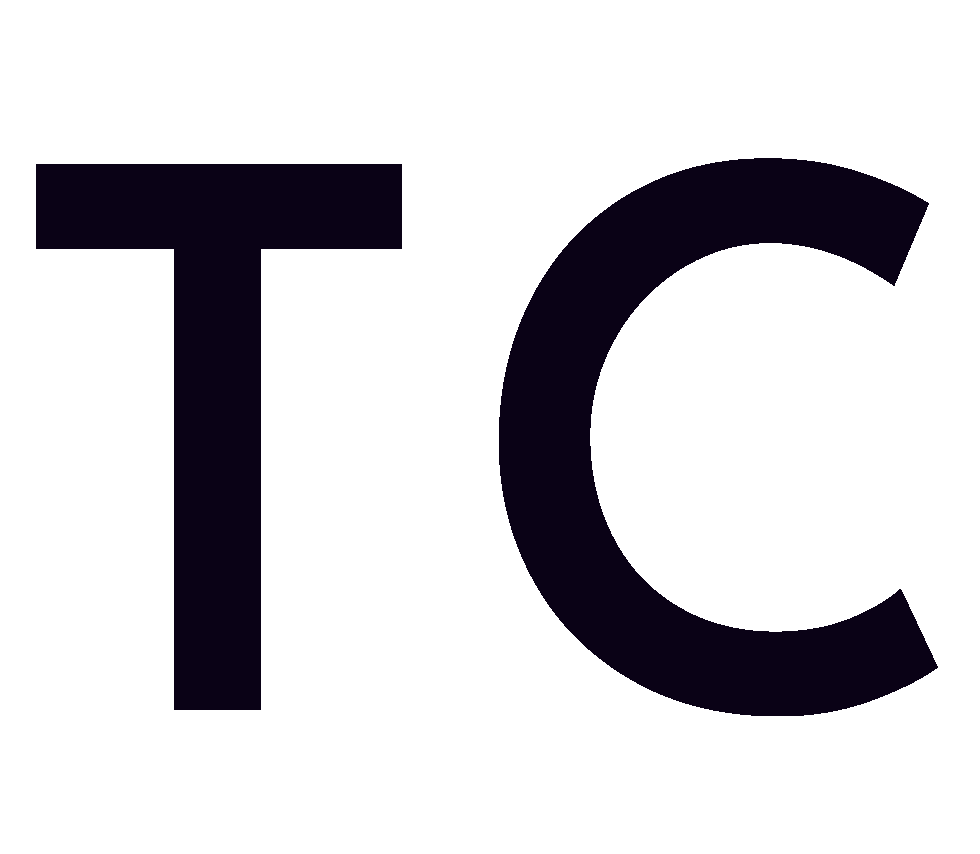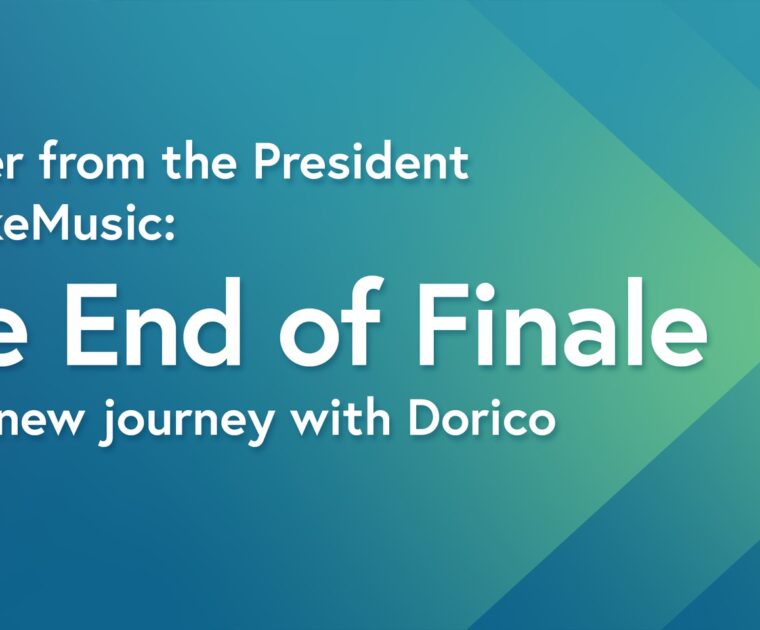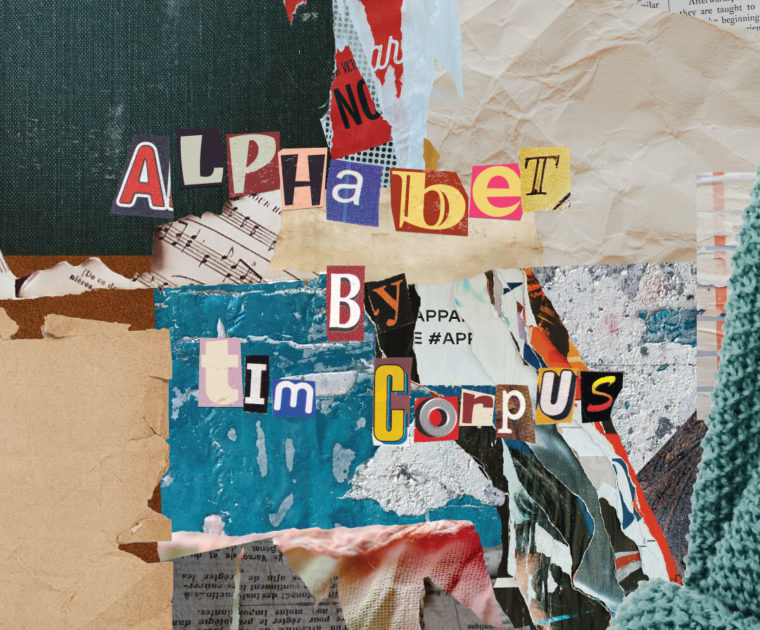How to Find a Film Composer
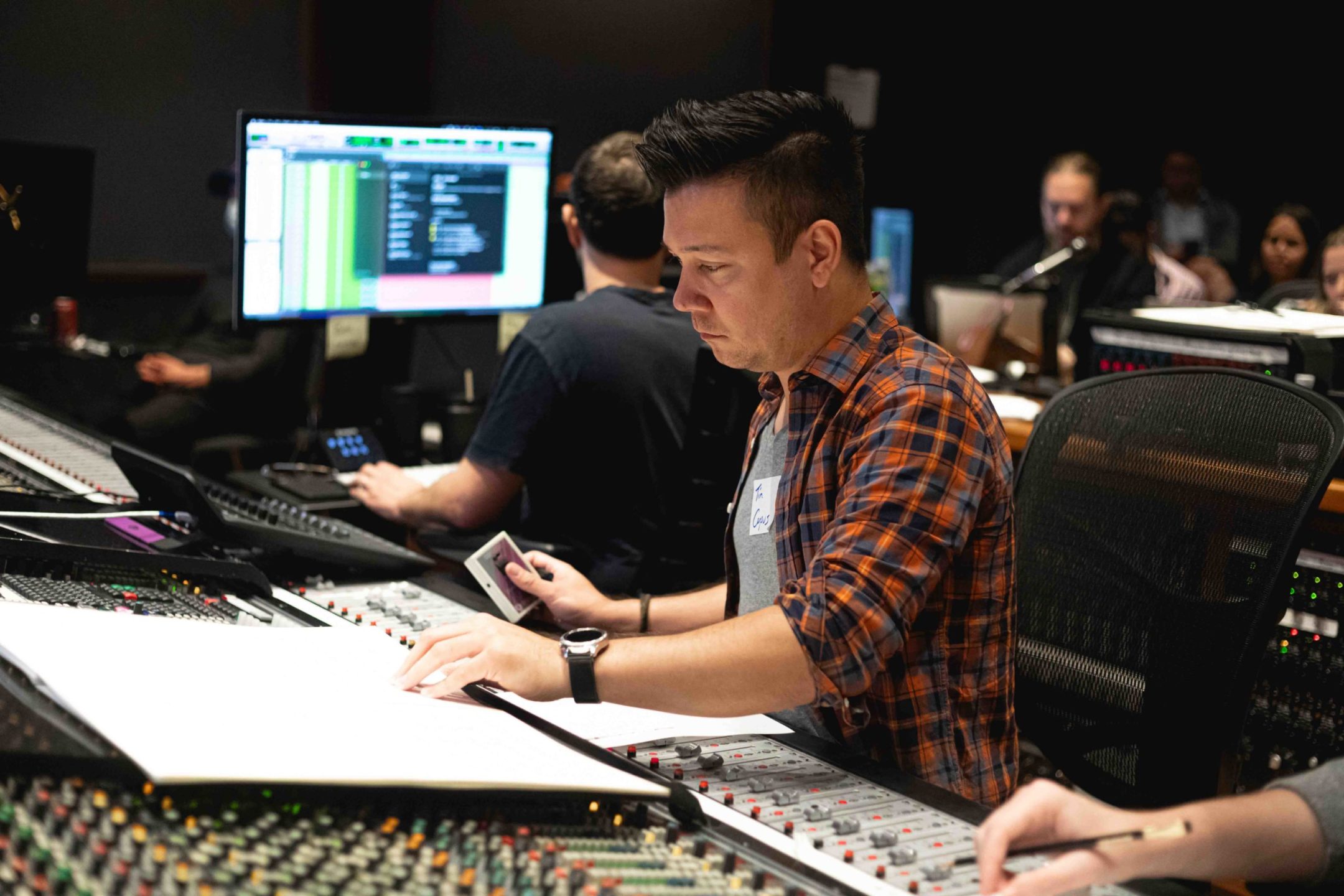
So you’ve reached post-production of your project, or perhaps you’re a planner and you’re thinking ahead about the sound world for your film. Now you need to find a film composer.
First off 🍻, good for you in embracing the idea that sound can help shape your story. A custom score is more than just some sound files within your project. The right score is an additional asset in your toolbox to bring your story to life. The right music for the right moment can completely change a project.
Sometimes I’m surprised when folks say they “can’t find a composer”, that’s probably just because I run in many circles with composers that it seems like everyone everywhere is a composer or sound designer. 🤣
But of course this isn’t always the case, and like any niche career path, finding the right person can be a tough task.
There are a lot of great and talented composers out there who would be thrilled to work with you.
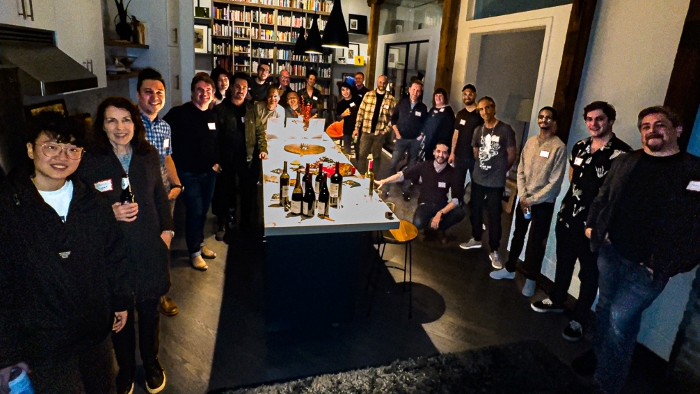
In founding the Chicago Media Composers & Lyricists group with composer Tony Scott-Green, I’ve met so many talented composers and sound designers who love collaborating with Directors. I have found though, that directors and producers are a bit in the dark about how to work with or approach a movie or media composer.
Here are a few things to keep in mind when you are looking for the right composer for your project. And I’ll emphasize the right composer for the project. Not every composer is right for every project and that’s ok.
What is the style of music for your film score?
Consider the style of music that you want for your project. Not every composer writes in every style (and that’s ok!). Many of us composers write in multiple styles, but our artistic voice is often grounded in a few styles. It’s helpful for you to know what direction you want to take the film.
Is it jazz, electronic, orchestral, experimental, or popular styles? Or are you open to anything? There’s no wrong answer. Knowing what style you want for the film can help narrow down the right composer for the project.
If you don’t know what you want, start with what you don’t want,
that can also be helpful in the process.
I love getting to compose in various styles. I enjoy the challenge as well as the opportunity to expand my compositional voice. Like any composer, I do have my preferences though.
Temp music is a sensitive subject, but I don’t think it’s problematic to say, “This score should achieve something similar to XYZ”. Try to think more about what the music does to the scene, how it makes you feel, as opposed to the specifics of exactly what it sounds like (this leaves space for creativity).
Sure, you could say “hey I want an orchestral score”, but there are a zillion different ways to have an orchestral score. For example, I have a large orchestra piece called The Haunted House which is big scary orchestra with synthesizers and sound effects. I also have a tender and adventurous orchestra piece called A Light Divided that is only 16 musicians and was recorded at Silent Zoo Studios in Los Angeles. They are both orchestra but they sound drastically different.
Make space for your film composer to be innovative
It’s easy for all of us to fall in love with the scores we have heard in the past. I recommend leaving space for your composer to be creative and compose something new. Try not to box them in to sounding just like someone else. It’s the right sound for the right moment, that’s what we’re after.
How is the composer a teammate?
Even though they’re often brought in late into the project, a composer is another critical team member on your film.
For many projects, the team has been writing, planning, and producing the story for months or years, and now at the end of the line a new person is brought in to the team. This can be difficult for the team and for the composer. Friend and composer Deciius (Jon Pierre) recently said to me, the composer is the last actor in the project. This is such an insightful perspective about the composer’s role. Composers are bringing the character of music which can provide subtext, emotional weight, and that extra oomph the story needs.
The composer is also often a sounding board for the Director and Producer. Perhaps you’re feeling stuck in the project, time ran out, or money was running out. Maybe there were rain delays and you didn’t get the shots you needed. What now?
A good composer can use the score to help fill in some of the gaps in your story, they can also help with emotional and geographic transitions within the project.
Where are the composers?
Meet local composers at film festivals and meet up events
A great place to start is by going to your local film festivals or film hangout events. I am out at networking, screening, and film events every week (yes, it’s exhausting). My film friends and I often hang out at a local pub in Chicago, we’re at the Midwest Film Festival, or any other industry events.
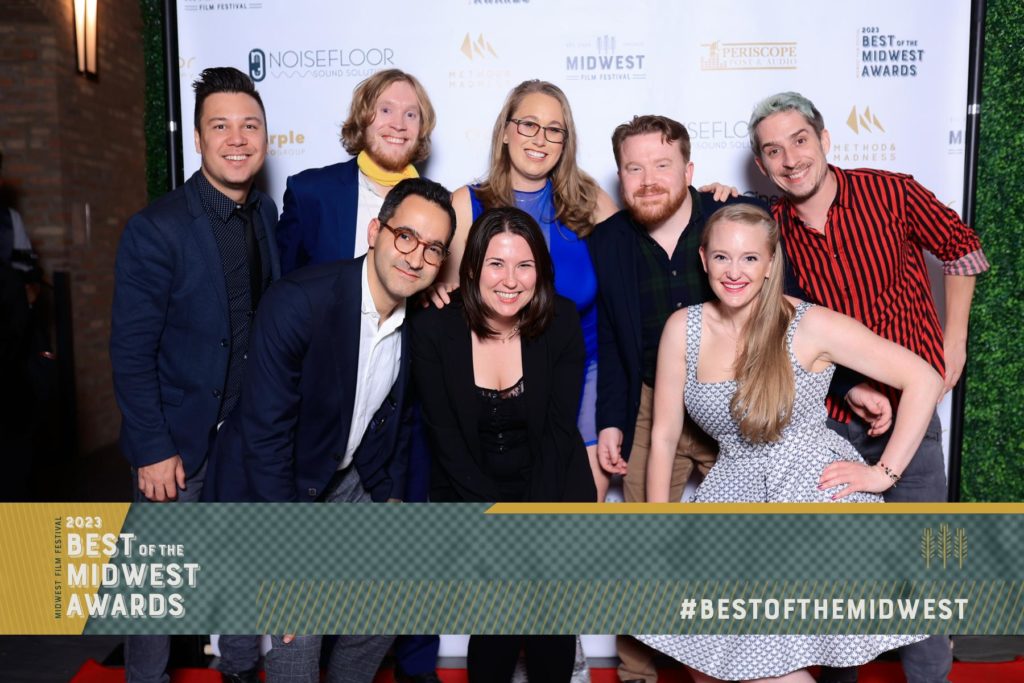
These are just a few locations locally that are good for meeting composers and other folks within the industry. It’s also a place just to meet great friends.
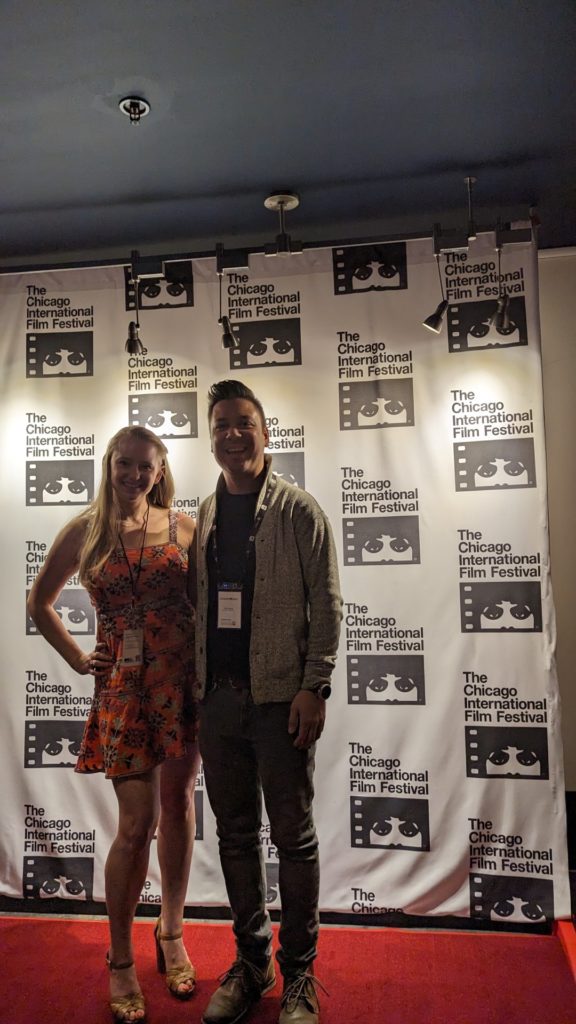
Networking doesn’t have to be a serious and scary situation. The best thing you can do is be friendly, be interested in others, and have fun. There are lots of resources out there about how to network, but I think a great way to start is to just be a good person and a good friend to others.
If you don’t know where the local film events are, try this:
- Google search “[your town] film meet up”, or “[your town] film festival”
- Get on Facebook and do the same search
- You could reach out to your local government film council. A lot of towns have a film council that handles permitting for projects and is also involved in the local film scene. Ask “where are the film people?”
- If you can’t find them, perhaps that means there’s a gap in the community. Why don’t you host a meetup at a local venue?
There have been times in my life when I felt like I was the only one not invited to the party,
when it turns out that there was no party.
No one was connecting the community I was looking for.
Finding an experienced film composer online
There are also digital platforms to find composers like Discord servers and Facebook production groups. I urge caution when posting that you’re looking for a film composer on any digital platform. You will likely receive a million responses and proposals because everyone is a composer. 🤣 You will then have to go through all of these different proposals. This isn’t necessarily a bad thing, just be aware so that you are prepared to properly go through all of the applications.
Some folks use websites like filmlocal.com, mandy.com and, productionhub.com. I am personally not a big fan of these “pay-to-play” platforms because they require industry folks to pay a monthly fee to search for work. These barriers block a lot of talented people from entry and I don’t believe we should profit off of folks looking for a job. If you use platforms like Mandy.com (I too have replied to postings on that website, but I have a pretty low success rate pairing up with a project), just be aware of how much time it will take you to fairly and honestly review all of the applications.
What do I say when I’m looking for a composer?
It’s ok to not know what you want in your score. You can still have a positive conversation with a film composer to find the right sound world. If you are going to post on any platform, I recommend being as specific as you can about what you are looking for. The more professional your posting is, the more professional responses you will receive, and the easier it will be for you to find the right teammate.
Important details for your film composer
- What type of project is it? (comedy, documentary, science fiction, etc.)
- How long is the project? Is it a short film or a feature length project?
- What is the timeline for receiving the final audio files?3
- Are you using other music like stock music or pop songs in addition to the original score?4
- Who else is on the sound team? Is there a Music Supervisor, Foley Artist, Sound Designer, Sound Mixer, etc.?5
Footnotes
- Wall-to-wall music is when there is music throughout the entire project, from the start to the very end. This can be common with short films, but is not always the right choice. It’s often a good idea to give breath and space to the sound world in your project. ↩︎
- Music is often divided into cues. These are the musical equivalent of scenes. A film score is comprised of multiple cues. Sometimes a cue can have the same or similar music to each other. ↩︎
- Composing takes a lot of time, especially if you want it done well, so you have to factor and plan for that. If it’s a 10-minute short film it’s important to note that it’s going to take the composer a lot more than 10 minutes to write that music. ↩︎
- It’s common to use songs in your film for emphasis or story-driven purposes. It’s a good idea to make sure your composer knows this so they can work with that music as a reference point, or perhaps go the opposite direction and make space for it in the overarching sound world (that can be a nice juxtaposition). ↩︎
- Often in ultra micro-budget films, the editor is mixing the final audio. Make sure you discuss with your composer who is mixing the final audio and how. ↩︎
Does the composer only compose music?
If you’re posting a job description, think about what it is you’re asking the composer to do.
Are they only writing music? Are they also recording and mixing the music and providing the final mixed/mastered audio files? Are you recording live musicians and need sheet music prepared for the recording session? Do you have a Music Supervisor or a Sound Mixer who will be remixing the files?
As a composer for media, I (and others) often produce our own recordings and mix the score too in collaboration with the sound designer and sound mixer. I show a bit of this process in the Behind the Scenes of Recording “A Light Divided” video on YouTube.
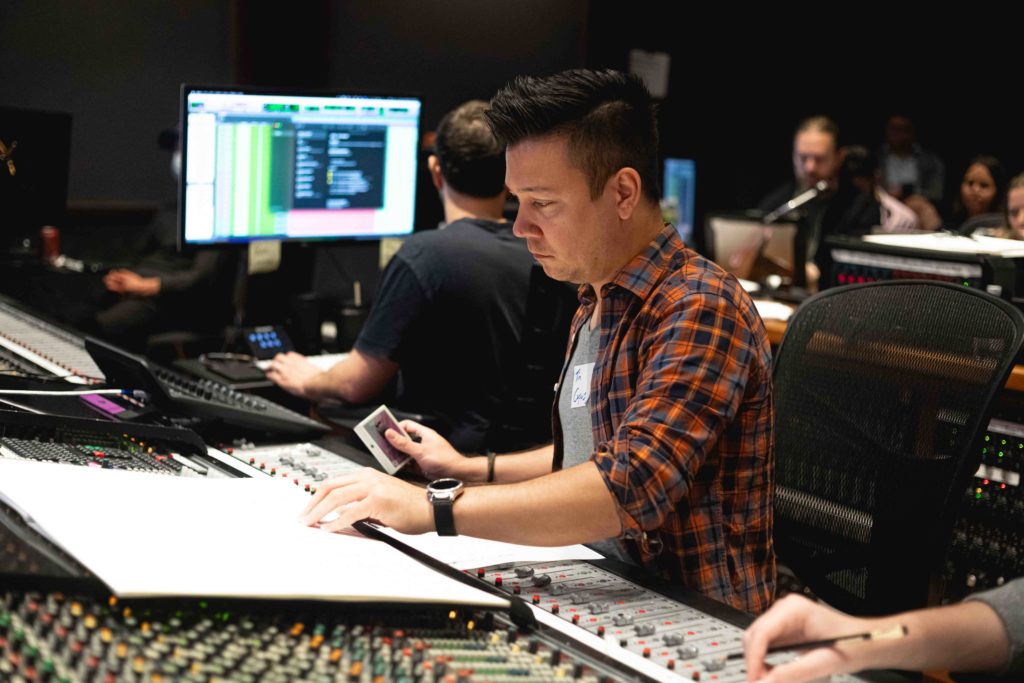
Something to think about with your soundtrack are the live recorded elements. Recording real players doesn’t have to cost tens of thousands of dollars. There are a lot of ways composers can add in live elements to bring a score to life and it’s absolutely worth it.
I do this all the time when I record my own percussion parts, pair synthesizers or virtual instruments with live guitar or cello to double the string parts. To save on studio costs, I’ll bring in a vocalist or instrumentalist to record in my own studio if we don’t have the budget for a more impressive space. There are an infinite number of ways to have live music elements elevate the score. What often hinders the live elements of a score is the timeline. Live takes time, so give your composer some time to work.
Silence is Golden
At a recent Chicago Media Composers & Lyricists event, Tony Scott-Green reminded the audience that the composer is also the person thinking about when to “play silence” – when is the absence of music necessary in progressing the story forward?
Another important thing a good composer does is knows where not to place music.
Where is silence or the absence of music most effective?
Silence is a sound. It can be just as heavy in a moment as music.
Delivering Success
Be clear with your composer about what the deliverables will be. Explain if they are handing over audio files as cues or files from the start of the video file all the way through the end, including the moments without music. This is a conversation that can include your Editor, Sound Mixer, and Producer.
How much time does a composer need?
One of the worst things I see on sites like Mandy.com are listings that say they have a finished project and they are looking for a composer to write music, it is due in one week, there’s no pay, but it will be going to festivals.
🙄 Everyone thinks that their project is going to go to festivals, but of course not every project gets in to festivals.
If you’re paying for your actors and crew, you should be paying for your composer. The production team should all be fairly compensated. If this is a super tiny budget and no one is getting paid, everyone is volunteering, and the money is only going towards production elements, that’s fine, just be upfront with everyone about it.
Be respectful of your peers. If you’re rushing and giving 1 week to find a composer, get them signed on to the project, and they have to deliver final files, that’s not their fault. You and your producer should be planning to give your composer time with the project to create the best score possible. The amount of time a composer needs on a project will depend on its scope. There is a sweet spot between too short and too long specific to each project, but I like when the producer is planning on the middle side with an extra buffer in case anything goes wrong, there are new cuts, or pickups.
Here are a few things that influence how long it takes a composer to create the score
- Scope of the Project: How much music, what type of music, size of the ensemble, etc.
- The Creative Process: Some composers work faster than others, but most composers understand the need to work rather quickly. How complex are the scenes with the music? Scoring to action sequences can be a slower process because of all the specific action “hits” that the score interacts with. Additionally, the quality of the script and the Director’s process impacts the quality of the score.
- Recorded Elements: Booking an orchestra takes time and there are a lot of rules around this depending on the budget of the project and local unions. Schedules have to be lined up plus the studio and engineer need to be scheduled in advance. Last minute scheduling can often lead to rush fees, avoid extra costs be being a good planner!
- Sheet music preparation: Creating the sheet music for an orchestra can be a slow process depending on the size of the orchestra. Rushing this will lead to errors in the sheet music which will cause delays in the recording session. The software for creating sheet music is quite impressive and even with decades of advancements, it’s still extremely problematic.
- Additional: How prepared are you and your team to review the cues and approve them? What is your review process (iFrame, Dropbox, etc.)? How many “cooks” are in the kitchen for the revision process? How busy is the composer with other projects? Who is mixing the final audio files? Are you merging audio files on a dub stage? So many other influences…
When to bring the composer on to the project?
I love when I’m brought on to a film during the writing process. In writing music for films in Ending the War on My Body, I was in discussions with the Creative Director, Writers, and Directors from day one. This made for a smooth process during composing. I knew the story inside and out and had a great relationship with the team in order to prepare the best music possible. I was also able to better gauge how much time it would take me to write on each of the films because I understood their specific needs.
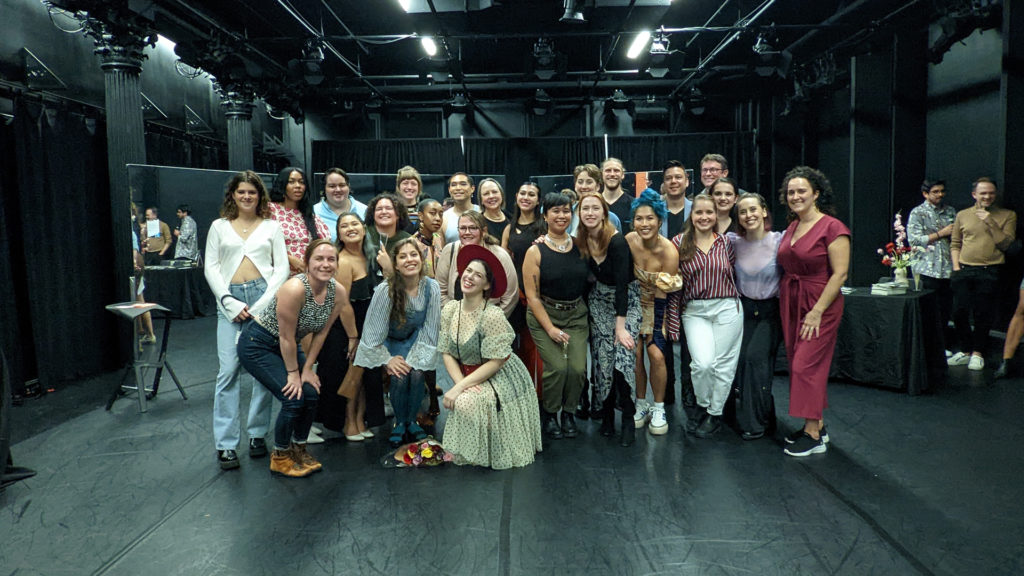
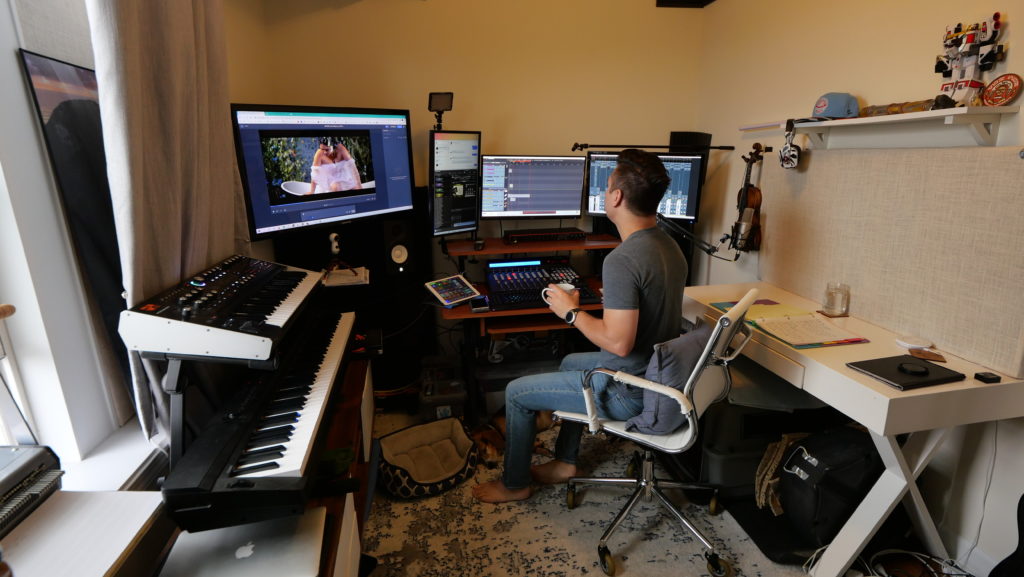
Even if there’s nothing for me to write yet and it’s just conversations, it’s great to work with the Director and brainstorm ways that music can help with the storytelling. This can also benefit the Editor and Director to plan for how music will function in the final scenes.
Sometimes the time isn’t available, and it isn’t the end of the world. I say just be respectful and understanding of what you’re asking the composer to do.
Revisions and Picture Lock
It’s important to know that editing your film and moving a scene a few frames to the left or the right often makes huge changes to the music. If a 31 second cue is composed for the scene and now the scene is edited to 30.5 seconds, that means 0.5 seconds of audio needs to be cut out (that’s longer than it sounds). Perhaps this is a fast paced action moment like my score for Immortals, where the music is hitting specific action moments on the screen. In this case, moving even 0.5 seconds makes the music miss the “hit”.
Do your best to provide your composer with picture lock and let them know if there are going to be changes. Additionally, revisions can be complicated and oftentimes film scores aren’t as straightforward as they sound. Fitting music to a specific cue often takes “musician math” to make sure that the music lines up within the scene. For example, check out my score to Indebted Department. In this film you can see a variety of time signatures I use in the sheet music to make sure that the music lands at the right time. This is a common approach in film scoring to solve for timing issues.
Remember the old adage: Good, Fast, Cheap.
You can have the end result “good” and you can have it fast, but it won’t be cheap.
You can have it fast and cheap, but the end result won’t be as “good”.
You can have it “good” and cheap, but it will take longer.
The saying goes that you can have two but you can’t have three. “Good” is in quotes because of course everyone is striving to make something good, we just have to understand the limitations of the work environment. And of course, this isn’t cut & dry or hard & fast, but it certainly is food for thought.
Do I really need a composer for my project? I’ll just use stock music or AI.
There’s a lot of talk and feelings about AI and stock music. Those are certainly options for projects, but I think it comes down to what quality level do you want your project to be at?
I have met directors who also think that they don’t need music at all in a project and only need it for the credits. This is certainly an option too – I’m not saying it’s the wrong option – but definitely be aware of what sound does to your project. Music can provide important grounding and subtext for your story, helping you show the story more than tell it.
Are you trying to enter your project into film festivals? Be aware that they may be concerned about including your project due to licensing and legal ramifications of you using AI or stock music that isn’t necessarily cleared for this specific use.
The sound team works together with the Director and Producer to make sure that the music, dialogue, and sound design is all in balance with the story. 🤖 AI and stock music aren’t team members, they’re just assets. So what quality level do you want your project to be at?
AI and stock music aren’t team members, they’re just assets.
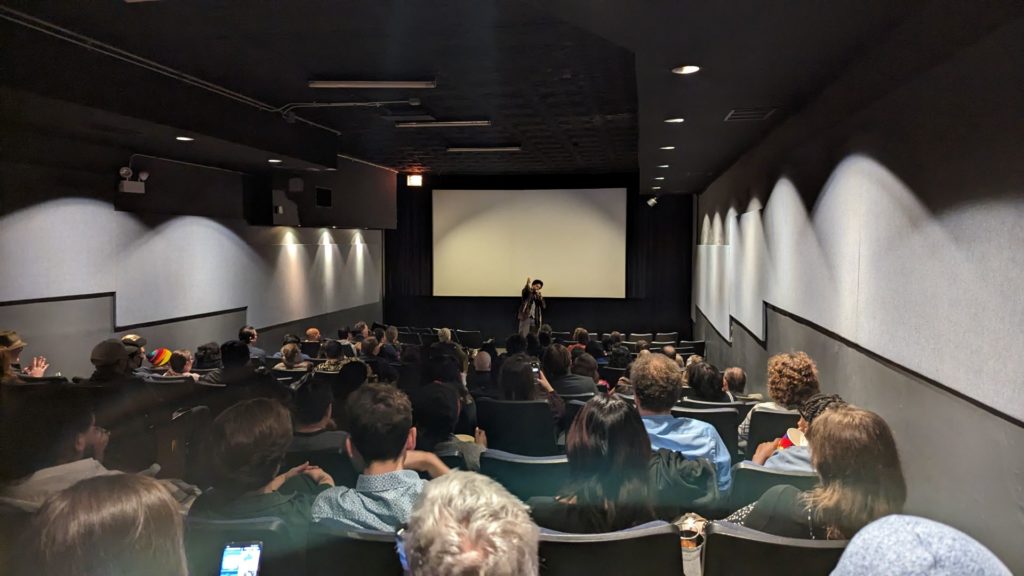

How much does a film composer cost?
Now of course people may be saying, “all this sounds great but I can’t afford it!”
I am obviously biased, but I think that sound is an important part of the storytelling process. Before you succumb to the belief that you cannot afford a composer, have you exhausted all of your options?
Fundraising Opportunities
- Did your line producer budget properly for music?
- What about local city or state grants?
- A lot of metropolitan areas have grants available for artists to cover these type of expenses and they are a good use of your tax dollars!
- Have you looked in to the New Music USA Reel Change Film Fund?
- The composer you’re working with may have a fundraising network to help cover part of their costs.
- My business has lists of musicians, studios, engineers, corporate partners, and fundraising and financial assets for activation when needed. Many of us composers have partners for our businesses. The composer may be able to help point you in the right direction if you need help.
Caveat: It’s not the responsibility of the composer to find their own funding.
My point is that they may be able to share ideas that you or your producer haven’t though of since you as a Director/Writer/Producer don’t live day-to-day in our post-production audio world.
Music Budget
You know your budget and you know what it is going to take to produce your film. Instead of approaching any team member with the thought of how cheap can I get someone, think about what you value and what you can afford. This means you may only be able to afford a composer writing with piano and a synthesizer, that’s it. Perhaps you can only afford a score with virtual instruments for now, then when your project is successful at a few festivals you will have the funds to replace the cues with live orchestra.
Like every aspect of budgeting and planning a film, there is a give and take. Like they say, “you get what you pay for”.
Music budgets can include the composer fee and then also the recording fees. Sometimes producers lump all the music budget together as a package deal for the composer to then pay the musicians and studio rental. It depends on the needs of the project.
What are the music costs?
Creating a film score costs more than just the composers’ time. Here are a few of those costs:
- Composer fee: How much is the composer and their creative voice valued at.
- Don’t forget that you can release a soundtrack after the film is done, your composer can win different awards that amplify the marketing of your project. Film composers and their scores often self-market more than a camera operator or a PA or gaffer.
- Live musicians: Depending on what is needed for the project and the scope of the recording, musicians may be union or non-union, but will need to be paid. Musician rates vary drastically across the globe. Pay your musicians (and everyone on the project) fairly.
- Recording studio fees: These costs include studio rental time, recording engineers, etc.
- Mixing/Mastering engineer: In large recordings it can be especially useful to have a mixing and/or mastering engineer separate from your composer and recording engineer. This is another set of trained ears to help balance the sound of the recordings.
- Music preparation: Music preparation is the actual creation of sheet music for the live players during the recording. If there is a lot of music to compose for a score, it can be helpful to have someone assist the composer in creating the score and parts for the recording. The process of preparing and printing the sheet music is extremely time intensive, so sometimes it’s better to use the composers time to focus on writing music rather than creating sheet music files. I talk more about music preparation here.
- Equipment: Composers use a lot of expensive equipment.
- Composing and recording programs like Cubase, Reaper, Pro Tools, Logic, Dorico, Finale, and more cost on average $400. These all require a serious computer to run well (just like how you would need a serious computer for large Premiere Pro, DaVinci Resolve, or Final Cut projects).
- Hardware like microphones, instruments, pre-amps, cables, audio interfaces, good speakers, mixers, MIDI keyboards – more expensive than you want to know. 🤣
- Software: EQ, compressors, reverb, distortions, and more can range $100 – $2,000+ depending on what they are. Composers will typically have several different options of these because each typically has a particular nuance for a specific use.
- Virtual Instruments like brass, strings, percussion, pianos, etc. can stack up pretty quickly. A quality library for just string instruments is often ~$500. Composers will often mix and blend various libraries to achieve the most real sound.
A few things to think about in terms of film composer compensation
- The “level” that the composer is at within their career impacts their perceived value to the market.
- How much music do you need for your project?
- How long do they have to work on the project (like I said earlier, an urgent request deserves a higher fee).
- How complex is the score? (is this just a few long tones of synthesizers for effect, or is this a very detailed and ornate textural score?)
“I heard composers get paid by the minute”
There are often “by the minute” rates like $100/minute tossed around for film composers. $100/minute for finalized music is extremely low. People often talk about professional composers creating 2 minutes of music in 8 hours of work a day. This is of course a generalization, (the amount of time would change depending on the complexity of the music) but assuming that rate of creation even a ten minute short film will be a real time investment for any composer.
The above is also a composer writing just one take at the music, so then we need to factor in the additional time for:
- Revisions
- Mixing
- Sheet music preparation
- We’re not even counting in their time recording or producing
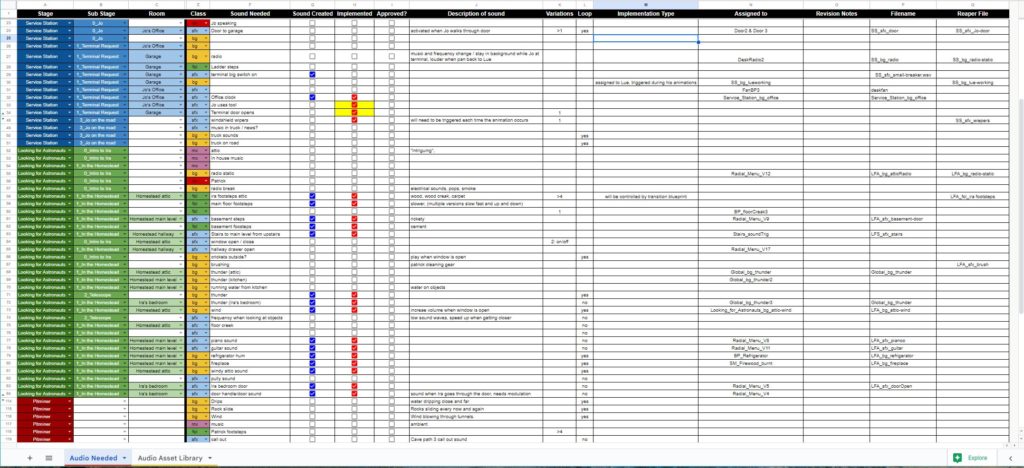
Let’s make some random assumptions and generalizations about a project with those 2 minutes the composer wrote in one day. Let’s add:
- 4 hours of writing for 2 revisions
- 1 hour of mixing those 2 minutes of music
- 2 hours for either perfecting those virtual instrument sounds or preparing the sheet music^
So the composer spent a total of ~15 hours of work on 2 minutes of music. At a rate of paying them “$100/minute”, they’re actually receiving $200 / 15hrs = $13.33/hr. This is less than minimum wage in more than a dozen US states including Arizona, California, Colorado, Illinois, Maine, New York, and Washington (2024 stats).
^Virtual instruments take a lot of time to finagle and adjust to sound good. They do not sound perfect out of the box, there are a lot technical reasons why.
In this video (shared with me by composer and a founding member of Teammates Kent Kercher) Chris Do explains why charging by the hour can be a fools errand.
Not sure where to start with determining your fee? Read this to learn more about how much you should charge as a film composer.
Music budget as a percentage of your film budget
Line producers can sometimes think about a % of their budget going towards the music budget. For smaller projects it could be 10-15%, for larger budgets it could be 1-10%. If your project has a total budget of $50,000, 10% would be $5,000. This is only an approximate starting number to think about, every composer has a different fee structure depending on where they are in their career journey and the specifications of the project. The percentage of a budget towards music would also vary greatly depending on what the project is looking for. The cost to the composer depends a lot on the amount of music needed, the style, the demands (timeline, scale of the project, etc.). Because no two projects are the same (hopefully they are original ideas!), it’s important to work with your composer directly to determine what’s a practical fee.
This information isn’t meant to scare anyone off, it’s just a starting point for a conversation. Even if you don’t think you have the money, have the conversation with your composer first and see what is possible. Even the smallest gesture can go a long way in showing that you value the members of your team.
I am doing this film with a $0 budget, what now?
If you cannot afford to pay a composer right now, it’s not the end of the world. At its worst by speaking with a composer you met a new friend. At its best, you met a new teammate who is going to support you in your own journey. Hopefully they’re understanding of you and your position, and if you can’t work together this time, perhaps in the future.
It’s important to understand that nothing is free. If a composer agrees to write music for no fee, it’s pro bono because even though you may not be paying for it, the work is still costing something.
I have done pro bono work in the past that I have loved and I have no problem with that. I do, however, have a problem with working on low paying projects because they do not value the composer/the music or they are disorganized and did not budget well.
In my contracts, even when it was pro bono, I still listed the fee and stated that it is being waived. I also like to note that if the project does end up making money, that as a member of the team that made the project come to fruition, I will be compensated fairly. Again, that does not mean that it is free, it means that the costs are being absorbed by the Composer not the Producer.
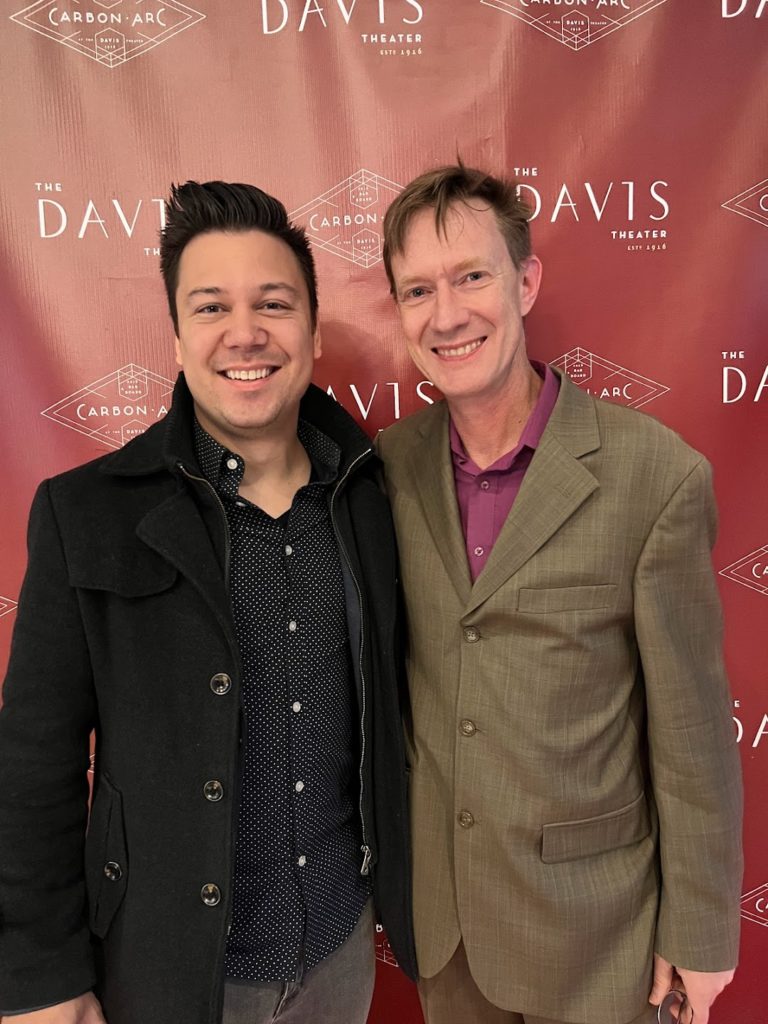
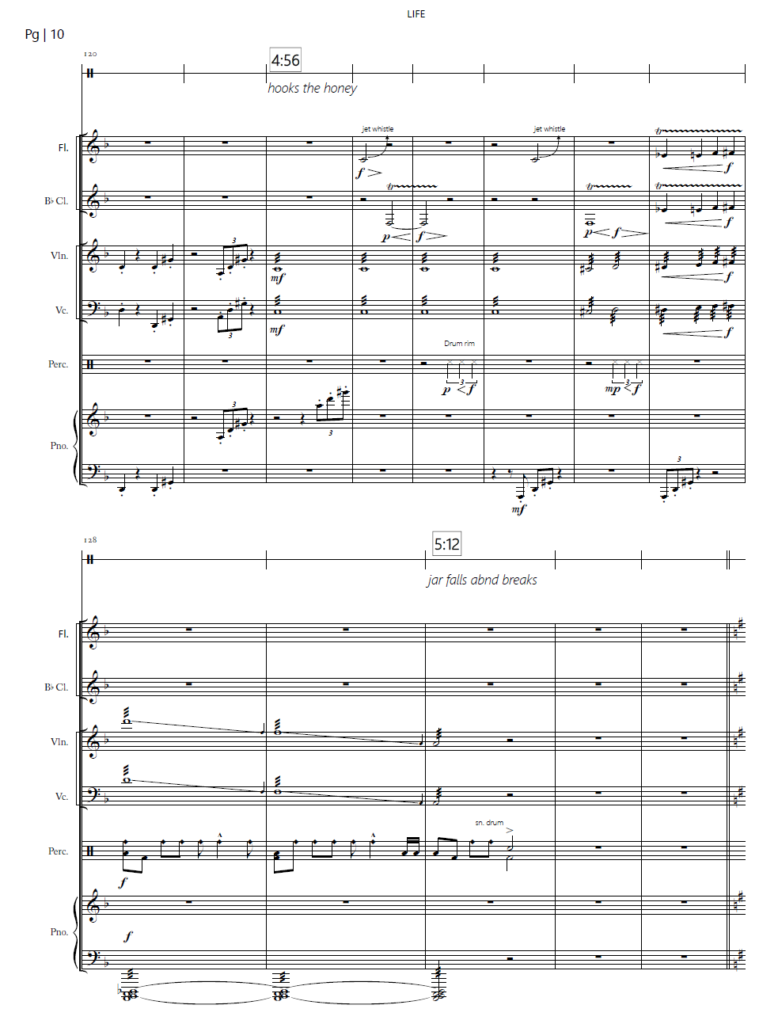
Who is the right composer?
Meet with your composer
I’ve done a lot of hiring in my work as a consultant for arts organizations around the country, and something I urge people to do is spend time with the people they are hiring. If this person is going to be a teammate, they should be a good culture fit. Personally, I would much rather hire someone who may have 80% of the tools for the job, but they have 100% of a good attitude and a willingness to learn and do the work. Of course this, like everything else, isn’t cut & dry, but to me working with good people is paramount.
We’re looking for the right person for the team and that can be determined by a variety of factors. That’s why I say not every composer is best for every project. A composer may have the best portfolio you’ve heard, but if they’re difficult to work with and not interested in supporting you and your project, it may not be the right fit. Perhaps the subject matter isn’t right for that person, then it may not be the best fit either. This doesn’t mean it can’t work out in the future, but hopefully everyone on your team is interested and excited in the story.
Tips on what to look for
- Composers and sound designers have to work with a lot of assets and may have several versions of deliverables. It’s important for a composer to be organized.
- You are looking for a teammate, so look for a good fit with you and your project. If it doesn’t work out with the composer on a project, that’s ok, that doesn’t mean you can’t still be friends or work together in the future.
- Don’t forget that everyone has “stuff” going on behind the curtain in our lives. We’re all busy. Sometimes the timing just isn’t right.
If someone is not interested in doing the work, they’re disorganized, or they’re too much of a “hot shot” to fit in with the team, then I personally don’t want to deal with that headache. So after you identify your composer, meet with them (virtually or in-person) and talk about life and about the project. By this point you should have listened to the music the samples they provided and now you can discuss their ideas as well as what it is that excites you about the project. This doesn’t have to be an overly formal interview, but it can be great for both of you to see if this project is the right fit.
I know I have been emphasizing the idea of teamwork and culture fit, but do any of us really have the time to work with people who don’t want to be there?
Finding a Film Composer does not need to be a Headache
Finding the right composer for your project may sound like too much work, but your characters, your story, and your project deserve a great sound world. What quality level do you want your project to be at? There are a lot of great and talented composers out there who would be thrilled to write for your project.
Do you need help in your search for a composer or music supervisor? Reach out! I’m happy to help you in the process.
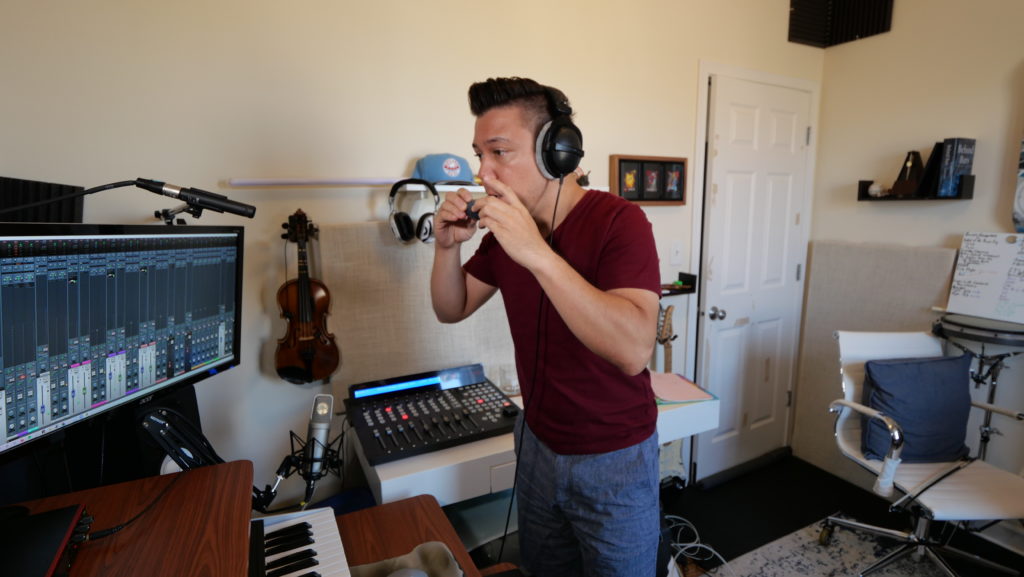
Tim Corpus, a Filipino-American composer and arts manager, brings his music to global audiences with performances at renowned venues like Carnegie Hall, the Bolshoi Theater in Moscow, and the Kennedy Center, as well as recognition on BBC Radio3 and CNN Money. In films and interactive media, he contributes as a composer and sound designer, including the upcoming video game “Ira, Act I: Pilgrimage.” He has received numerous awards including winning Best Original Score (Artists’ Choice Awards) and nominated for Best Original Music at the Motion Club Indie Film Awards. His album “MMXX,” received GRAMMY consideration for the 2022 awards, earning praise from critic Robert Hugill who described it as “a striking disc.”
An accomplished orchestrator and arranger, he often prepares music for esteemed performers worldwide, including Renée Fleming, Andrea Bocelli, Placido Domingo, Milwaukee Symphony Orchestra, Detroit Symphony Orchestra, The Ryan Opera Center at the Lyric Opera of Chicago, Third Coast Percussion, and others.
Recent soundtrack releases include the full soundtrack to Ending the War on my Body, released in 2023. Other recent projects include Strange Creatures in the Adult Wilderness and the Jordan Black’s comedy series.
